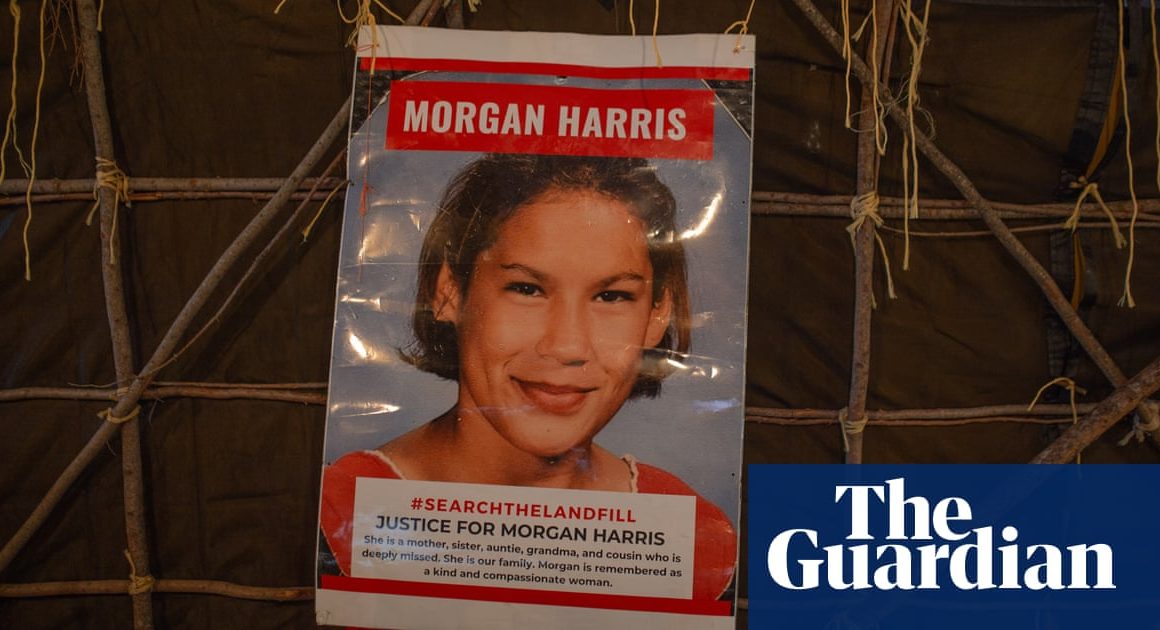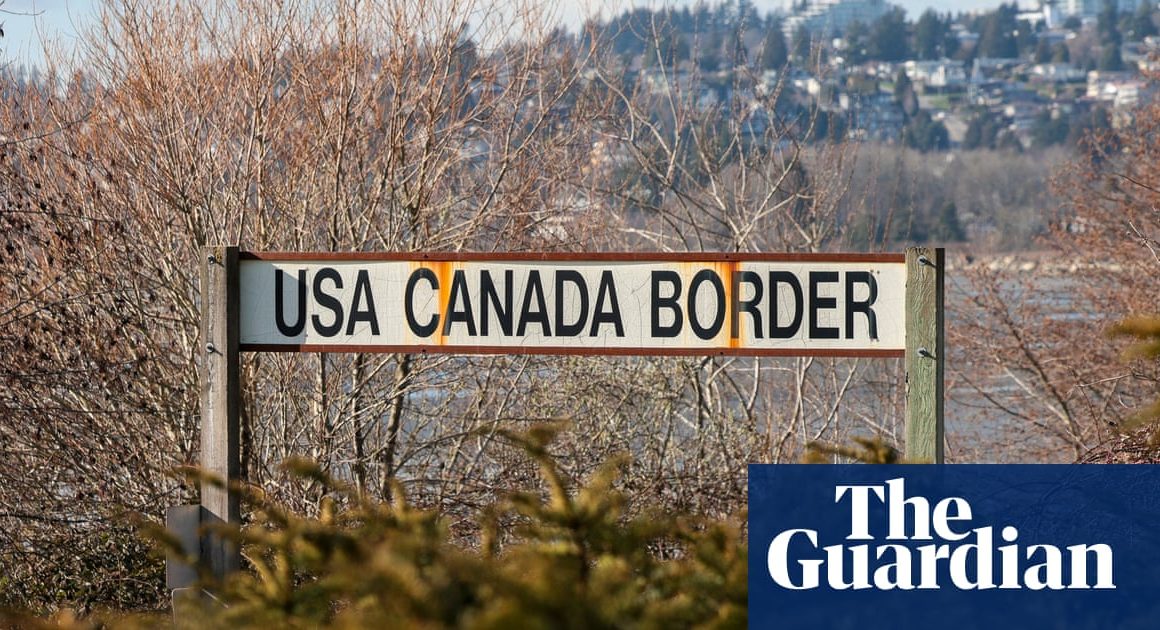UNRWA’s future ‘dire’, says chief as he calls Trump’s Gaza proposal ‘an international crime’
The head of the UN agency for Palestinian refugees (Unrwa) warned that the agency faces an “existential threat” after Israel formally banned it from operating on its territory.
International staff working for Unrwa have been forced to leave East Jerusalem because of the Israeli ban, but operations in Gaza and the West Bank have not been immediately impacted, the UN agency’s commissioner general, Philippe Lazzarini, told Associated Press.
Unrwa is also likely to face increased pressure from the US under the new Trump administration. Earlier this week, Donald Trump signed an executive order stopping future funding for Unrwa, which had already been suspended under Joe Biden’s administration.
Lazzarini called Trump’s proposal to take over Gaza as “totally unrealistic”, adding:
We are talking about forced displacement. Forced displacement is a crime, an international crime. It’s ethnic cleansing.
Key events
Anna Betts
Benjamin Netanyahu reportedly gave Donald Trump a “golden pager” during their meeting in Washington DC this week, in an apparent reference to Israel’s deadly attack against Hezbollah in Lebanon last year.
In photos circulating online, the golden pager can be seen mounted on a piece of wood, accompanied by a golden plaque that reads in black lettering: “To President Donald J. Trump, Our greatest friend and greatest ally. Prime Minister Benjamin Netanyahu.”
Israeli media reported that the Israeli prime minister, who is wanted by the international criminal court for war crimes, also gave the US president a regular pager.
The gift was reportedly a nod to Israel’s deadly operation last September against Hezbollah, during which thousands of handheld pager beeper devices and walkie-talkies belonging to Hezbollah detonated simultaneously across Lebanon.
The explosions killed at least 37 people, including children as young as nine years old, and left thousands wounded.
Netanyahu told US war could end if Hamas leaders go into exile – report
Benjamin Netanyahu, during his meetings in Washington, presented a plan for ending the war in Gaza in return for Hamas giving up power and its leaders leaving the Palestinian territory, Axios reports.
Netanyahu told US officials that he wants to extend the first phase of the Gaza ceasefire deal in order to release more hostages, the outlet said, citing sources. In exchange for additional hostages, Israel would be ready to release more Palestinian prisoners, it said.
The report said Netanyahu indicated that if the first phase is extended, he plans to present Hamas with a proposal that includes ending the war in Gaza and releasing “senior” Palestinian prisoners.
In return, Netanyahu would demand that Hamas releases the remaining hostages, relinquish power in the Gaza Strip and that its senior leaders, including those who will be released from prison, would go into exile, the report said. A US source said:
Bibi and Israeli leadership have articulated a plan that includes allowing senior Hamas leadership to go into exile in a third-party country.
If Hamas relinquishes power and its leaders go into exile, it could open the door for a day-after plan, possibly including Donald Trump’s proposal for the US to “take over” Gaza, according to the report.
Benjamin Netanyahu has been meeting with the US Senate leadership on Thursday as part of the Israeli prime minister’s visit to Washington.
Netanyahu was welcomed “with much esteem” and the Senate leadership “expressed unqualified support for the prime minister and the State of Israel and commended Israel’s achievements in the war,” according to Netanyahu’s office.
Describing the meeting as “warm and friendly”, Netanyahu’s office said he “clarified Israel’s position, and said that Iran had to be prevented from attaining nuclear weapons and that Hamas had to be eliminated in Gaza.”
“The bipartisan Senate leadership agreed with these positions,” it said.
In addition, the Senate leaders also committed to passing a law against the international criminal court (ICC), it said.
As we reported earlier, Donald Trump is expected to sign an executive order later today sanctioning the ICC for targeting the US and its allies, such as Israel.
UNRWA’s future ‘dire’, says chief as he calls Trump’s Gaza proposal ‘an international crime’
The head of the UN agency for Palestinian refugees (Unrwa) warned that the agency faces an “existential threat” after Israel formally banned it from operating on its territory.
International staff working for Unrwa have been forced to leave East Jerusalem because of the Israeli ban, but operations in Gaza and the West Bank have not been immediately impacted, the UN agency’s commissioner general, Philippe Lazzarini, told Associated Press.
Unrwa is also likely to face increased pressure from the US under the new Trump administration. Earlier this week, Donald Trump signed an executive order stopping future funding for Unrwa, which had already been suspended under Joe Biden’s administration.
Lazzarini called Trump’s proposal to take over Gaza as “totally unrealistic”, adding:
We are talking about forced displacement. Forced displacement is a crime, an international crime. It’s ethnic cleansing.

Jason Burke
International outrage in recent days has focused on Donald Trump’s proposal that the US take “ownership” of Gaza, and that more than two million Palestinians be displaced to allow the territory to be transformed from “a demolition site” into a “riviera” in the Middle East.
In Jordan and Egypt, the demand that both countries accept huge numbers of Palestinians from Gaza – potentially on a permanent basis – has prompted equal concern.
Leaders of both countries immediately rejected the proposal, and the Jordanian king, Abdullah II, and Abdel Fatah al-Sisi, the Egyptian president, are heading for Washington in an attempt to convince Trump to change course.
“They are terrified that an Israeli policy of population transfer will actually become real,” said Neil Quilliam, an associate fellow of the Middle East programme at the Chatham House thinktank in London.
But Abdullah and Sisi know too that they are vulnerable to Trump’s trademark transactional style of geopolitics as their countries’ economies and security depend heavily on huge levels of US aid and trade.
Read the full story: ‘Worst nightmare’: Egypt and Jordan put in impossible bind by Trump Gaza plan
Israel may not send a delegation to negotiations on the Gaza ceasefire and hostage release deal in Doha on Friday, according to a report.
Earlier this week, Benjamin Netanyahu’s office said Israel was preparing to send a high-level delegation to the Qatari capital to discuss continued implementation of the deal.
But according to the Times of Israel, citing an Israeli outlet, Israel will not necessarily send a delegation to Doha. A delegation, if one does leave for Qatar, will be a working-level team.
On Wednesday, a Hamas spokesperson said talks have started on the second phase of the ceasefire deal.
The first phase of the ceasefire went into effect on 19 January and involved a halt to fighting, the release of some of the Israeli hostages held by Hamas and the freeing of some Palestinian prisoners. A second phase is intended to focus on agreements on the release of the remaining hostages and the withdrawal of Israeli troops from Gaza.
The international criminal court (ICC), preparing itself for Donald Trump to launch aggressive financial and travel restrictions against it, has taken measures to shield staff from possible US sanctions.
The court has been paying its staff salaries three months in advance, Reuters reports.
In December, the court’s president, judge Tomoko Akane, warned that sanctions would “rapidly undermine the court’s operations in all situations and cases, and jeopardise its very existence.”
Päivi Kaukoranta, president of the ICC’s governing body, said sanctions risked severely hampering the court’s investigations and could “affect the safety of victims, witnesses and sanctioned individuals”.
Core services that would be jeopardised by institutional sanctions include the ICC’s access to banking and payment systems, IT infrastructure and insurance providers. Such measures would prevent US-based companies from conducting business or transactions with the court.
Trump to sign executive order sanctioning international criminal court – reports
Donald Trump will sign an executive order on Thursday sanctioning the international criminal court (ICC) for targeting the US and its allies, such as Israel, according to multiple reports.
The order will reportedly place financial and visa sanctions on individuals and their family members who assist in ICC investigations of US citizens or allies.
Since Trump’s inauguration on 20 January, ICC officials have been bracing themselves for draconian financial and travel restrictions against, in response to ICC arrest warrants in November against the Israeli prime minister, Benjamin Netanyahu, and his former defence minister, Yoav Gallant, for alleged war crimes and crimes against humanity in Gaza.
Last week, US Senate Democrats blocked a Republican-led effort to sanction the ICC. The court previously dealt with US sanctions in 2020 when the first Trump administration imposed travel bans and asset freezes against former prosecutor, Fatou Bensouda, and one of her top officials.
Human Rights Watch said Donald Trump’s proposal to displace Palestinians and take over Gaza could move the US “from being complicit in war crimes to direct perpetration of atrocities”.
“Much of the destruction in Gaza reflects a calculated Israeli policy to make parts of the strip unlivable,” said HRW Middle East and North Africa director Lama Fakih.
Standing beside prime minister Benjamin Netanyahu, whose government was responsible for this policy and is wanted for atrocity crimes by the international criminal court, President Donald Trump suggested displacing Palestinians on an even larger scale and ‘taking over’ Gaza as potential US policy in light of the destruction in Gaza. It would move the US from being complicit in war crimes to direct perpetration of atrocities.
“Governments should together make clear their strong opposition to Trump’s call for forced displacement in Gaza and take action to prevent further atrocities against the Palestinian people,” she added.
Donald Trump’s proposal to take over the Gaza Strip and relocate the territory’s Palestinian population would, implemented, amount to “ethnic cleansing”, Human Rights Watch (HRW) has warned.
HRW deputy Middle East director Adam Coogle described Trump’s plan as “very concerning”. “If done with intent, it would be forced displacement,” he said.
If that forced displacement was done as part of a systematic and widespread attack against the civilian population as a matter of state policy, it would actually be a crime against humanity.
The term “ethnic cleansing” refers to the forcible expulsion of a civilian population of an ethnic group from a certain area.
International humanitarian law prohibits the permanent forced displacement of the population of an occupied territory.
When such forced displacement is carried out with criminal intent, it is a war crime.
If carried out as part of widespread or systematic attack on the civilian population, reflecting state policy, it is a crime against humanity.
Summary
It’s 6pm in London, 1pm in Washington, and 8pm in Gaza City and Tel Aviv. In case you missed anything, here’s a quick round-up of the day so far.
-
Israeli defence minister Israel Katz ordered his country’s military to prepare a plan to allow the “voluntary departure” of residents from the Gaza Strip. It comes after President Trump proposed that the US should take control of and redevelop the territory.
-
Asked who should take the residents of Gaza, Katz said it should be countries who have opposed Israel’s military operations since the 7 October attacks. He also claimed that Spain, Ireland, and Norway, who all last year recognised a Palestinian state, are “legally obligated to allow any Gaza resident to enter their territories”.
-
The Palestinian president’s office said the Palestinian territories were “not for sale” and “not an investment project”. Palestinian news agency Wafa quoted a statement that read: “The rights of the Palestinian people are not negotiable and are not a bargaining chip.”
-
Countries around the world continued to come out in opposition to the proposal. UK foreign office minister Anneliese Dodds told parliament: “There must be no forced displacement of Palestinians nor any reduction in the territory of the Gaza Strip.”
-
Hamas called for an “emergency summit” of Arab countries to address the proposal. “We do not need any country to run the Gaza Strip and we do not accept replacing one occupation with another,” it said.
-
Egypt, one of the destinations Trump has proposed for displaced Gazans, said the plan would “squash” the ongoing ceasefire and “incite a return of fighting”. It added that the move would have “catastrophic consequences”.
-
The death toll in Gaza since the Israeli ground invasion began after the 7 October attacks now stands at 47,583, according to the Palestinian health ministry. The ministry’s latest daily update also said a total of 111,633 have now been injured.
Stay with us for more updates on the latest from the Middle East.
President Trump’s proposal to resettle people from Gaza in Jordan could undermine the country’s national security and is not something it can entertain, officials and former officials in the Jordanian government have said.
King Abdullah II of Jordan is due to travel to Washington for talks with Trump next week.
One senior official told Reuters the king had made a series of calls to gather support from regional players Saudi Arabia, the United Arab Emirates, and Qatar ahead of the meeting.
“This is the biggest test in ties with our strategic ally,” the official said.
One official added: “We hope we won’t see thousands of Palestinians streaming across the border trying to enter the Kingdom but we are prepared.
“Jordan will always be ready to do whatever it needs to protect its national security.”
Marwan Muasher is a former Jordanian foreign minister who helped negotiate Jordan’s 1994 peace treaty with Israel.
“This is existential,” he said. “There is very strong public opposition, and it’s not something Jordan can entertain.
“This is not an economic or a security issue for Jordan. It’s an identity issue.”










